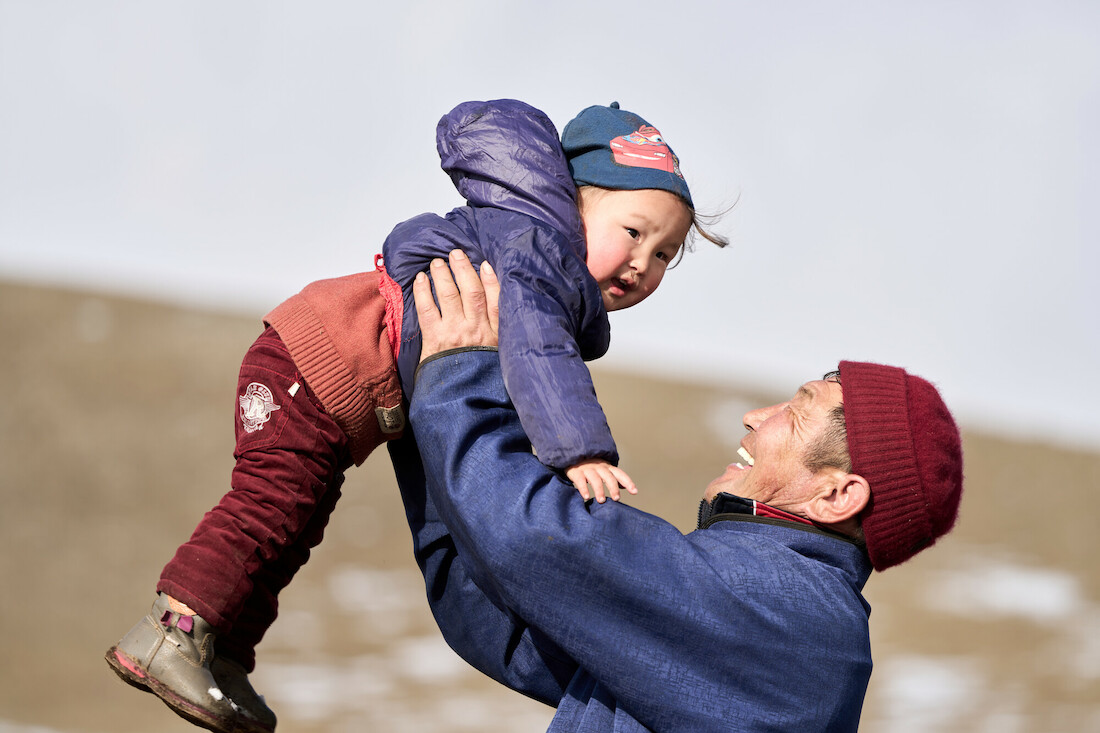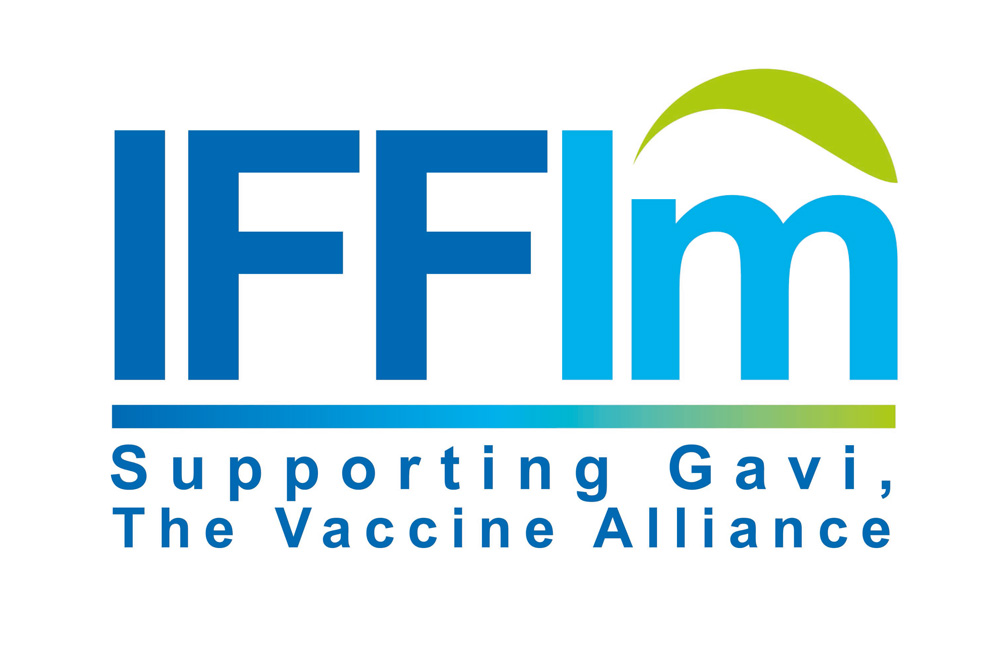COVAX begins vaccine rollout amid global supply challenges
COVAX begins vaccine rollout amid global supply challenges
9 July 2021

Buyanjargal and his granddaughter Anar at home in Mongolia. During the country’s lockdown, some herder families have been separated from the children they send to school. Credit: Gavi/2021/Khasar Sandag
Camel riders traverse Northern Kenya to spread the word about COVID-19 vaccines. Planes bearing half a million vaccines touch down in Manila. Mongolian villagers gather in a health centre waiting room in Batsumber. Around the world, millions of doses of COVID-19 vaccines have begun arriving through the COVAX Facility in the largest and most rapid global vaccination rollout the world has ever seen. And now, vaccinations are underway in 135 countries with over 100 million doses delivered so far.
When COVID-19 began to spread worldwide, the possibility that a vaccine against this deadly new virus would be developed and accessible – particularly outside wealthy, influential countries – seemed remote. In February 2021, Ghana became the first country to receive vaccines shipped and delivered by COVAX. By July, 135 economies had received shipments of this precious commodity — more than 100 million COVID-19 vaccines — and the number is growing by the week. Although COVAX has faced unforeseeable supply bottlenecks since then, it is on track to deliver more than 1.8 billion doses to lower-income countries by early 2022.
In March, Kenya received just over one million doses as part of the COVAX Facility. It was the first shipment of the country’s allocated 3.56 million doses. To assuage vaccine hesitancy, camel riders in Northern Kenya have been using their herds to bring traditional healers to communities to spread the word about COVID-19 vaccines, gaining trust and paving the way for vaccines that are starting to arrive.
COVAX has shipped more than five million doses of COVID-19 vaccines to the Philippines since March, and more than eight million Filipinos have already received at least one dose.
And in the Mongolian steppes, nomadic livestock herders hope that loneliness of the pandemic era will soon come to an end as COVAX vaccines become available. More than 90,000 vaccines were shipped in March 2021.
These hopeful scenes from daily life around the world illustrate COVAX at work. IFFIm funding has played an important role in getting COVAX off the ground. But for this mammoth effort, success also depends on how quickly vaccine supplies can turn around from a current shortage. At a time when the virus continues to spread, there are not enough vaccines to go around.
Strengthening COVAX AMC’s bargaining power
The Gavi COVAX Advance Market Commitment (AMC) has raised, as of mid-June, nearly US$ 9.7 billion. With these assured resources, COVAX has established the buying power to negotiate with manufacturers to supply doses at favourable prices.
IFFIm has added to this surge funding, strengthening the COVAX AMC’s hand as it buys COVID-19 vaccines from manufacturers. IFFIm has been a vehicle of choice for some sovereign donors to accelerate funding for the COVAX AMC. To date, Australia, Norway, Spain, Sweden and the United Kingdom have pledged an additional US$ 1.2 billion in long-term funding to the AMC through IFFIm.
Through recent sales of vaccine bonds, IFFIm has generated US$ 780 million in cash proceeds for Gavi to apply to the COVAX AMC, with other proceeds available for Gavi’s core immunisation programmes. And there’s more to leverage from the new donor pledges.
Reaching the most vulnerable
While COVAX has raised significant funding and distribution has begun, significant hurdles remain as COVAX aims to deliver 1.8 billion doses to people in 92 lower-income countries by early next year. That would be enough to protect at least 30% of people in 91 of these countries, plus a large swath of the population of India.
Yet, at the moment, many countries are still waiting for enough doses to reach 20% of their population – frontline health workers and the most vulnerable – which COVAX aims to immunise first. Overall, the global supply of vaccines has lagged. The shortage affects low- and middle-income countries the most. More than a third of people in high-income economies are now vaccinated compared to less than 1% of people in low-income economies who have had their first jab.
“COVAX hasn’t been immune to the global supply shortage and disruptions; ours have been magnified by the devastating second wave in India, meaning doses have been reallocated for domestic use,” said Dr Seth Berkley, CEO of Gavi, in a recent op-ed.
To address the pandemic in low- and middle-income countries, COVAX needs as many doses as possible, as soon as possible. Gavi and COVAX are calling on countries that have doses to share to donate them.
Some of the world’s wealthiest nations have already committed to sharing doses with lower-income countries through COVAX. Gavi has started accepting and distributing doses from France and New Zealand, with many more to come. Belgium, Denmark, Germany, Italy, Spain, Sweden, other member countries of the EU, Canada, Japan and Norway have all announced plans to donate doses through COVAX. The U.S. committed 80 million in dose donations (60 million through COVAX) and announced a second donation of 500 million doses. The EU’s Team Europe initiative, which consists of member states and financial institutions, announced its intention to provide COVAX with more than 100 million doses through dose donations, and the UK has committed 100 million doses (80 million through COVAX).
With new variants emerging, countries are under increasing pressure to secure enough vaccines to protect everyone. “During a pandemic, timing really is everything, especially when you are in the midst of the largest and most complex vaccine deployment in history,” said Dr Berkley.
In order to help prepare countries for a rapid scale up, the Gavi Board has allocated new funding of US$ 775 million to support the delivery of COVAX-funded doses in lower-income economies and humanitarian zones over the next two years.
As a crucial part of Gavi’s financial structure, IFFIm can help accelerate access to vaccines for vulnerable people. As COVAX speeds production and delivery for this urgent mission, IFFIm’s efficiency and effectiveness can bring future funding forward in time and, with the power of flexible financing, contribute to bringing an end to the global pandemic.
Visit Gavi.org to find current news and updates on the COVAX vaccine rollout.
Share this article
Restricted Access Library
 The material in this Restricted Access Library is intended to be accessed only by persons with residence within the territory of a Member State of the European Union and is not intended to be viewed by any other persons. The material in this Restricted Access Library is provided by IFFIm for information purposes only and the materials contained herein were accurate only as of their respective dates. Certain information in the materials contained herein is not intended to be, and is not, current. IFFIm accepts no obligation to update any material contained herein.
The material in this Restricted Access Library is intended to be accessed only by persons with residence within the territory of a Member State of the European Union and is not intended to be viewed by any other persons. The material in this Restricted Access Library is provided by IFFIm for information purposes only and the materials contained herein were accurate only as of their respective dates. Certain information in the materials contained herein is not intended to be, and is not, current. IFFIm accepts no obligation to update any material contained herein.
Persons with residence outside the territory of a Member State of the European Union who have access to or consult any materials posted in this Restricted Access Library should refrain from any action in respect of the securities referred to in such materials and are otherwise required to comply with all applicable laws and regulations in their country of residence.
By clicking Access restricted content: DYNAMIC-LINK-TEXT I confirm that I have read and understood the foregoing and agree that I will be bound by the restrictions and conditions set forth on this page.
The materials in this Restricted Access Library are for distribution only to persons who are not a "retail client" within the meaning of section 761G of the Corporations Act 2001 of Australia and are also sophisticated investors, professional investors or other investors in respect of whom disclosure is not required under Part 6D.2 of the Corporations Act 2001 of Australia and, in all cases, in such circumstances as may be permitted by applicable law in any jurisdiction in which an investor may be located.
The materials in this Restricted Access Library and any documents linked from it are not for access or distribution in any jurisdiction where such access or distribution would be illegal. All of the securities referred to in this Restricted Access Library and in the linked documents have been sold and delivered. The information contained herein and therein does not constitute an offer for sale in the United States or in any other country. The securities described herein and therein have not been, and will not be, registered under the U.S. Securities Act of 1933, as amended (the "Securities Act"), and may not be offered or sold in the United States except pursuant to an exemption from, or in a transaction not subject to, the registration requirements of the Securities Act and in compliance with any applicable state securities laws.
Each person accessing the Restricted Access Library confirms that they are a person who is entitled to do so under all applicable laws, regulations and directives in all applicable jurisdictions. Neither IFFIm nor any of their directors, employees, agents or advisers accepts any liability whatsoever for any loss (including, without limitation, any liability arising from any fault or negligence on the part of IFFIm or its respective directors, employees, agents or advisers) arising from access to Restricted Access Library by any person not entitled to do so.
"Relief" for mothers in Bayelsa state as malaria vaccine makes waves
07 November 2025
